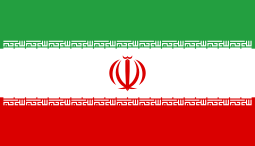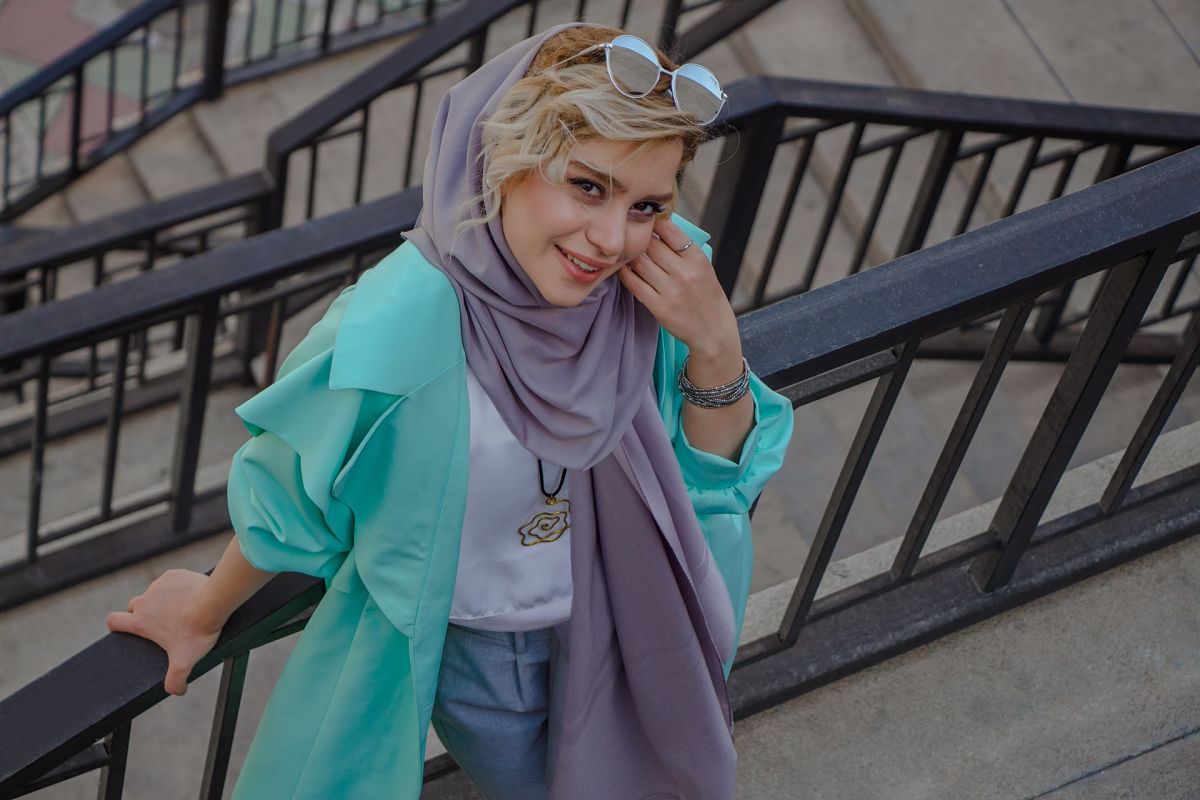Iran - Culture, Etiquette and Business Practices

Salaam (hello!) and welcome to our guide to Iranian society, people, manners and business culture.
What will you Learn About Iran?
You will gain an understanding of a number of key areas including:
- Language
- Religion and beliefs
- Culture and society
- Social etiquette and customs
- Business culture and etiquette

Forget all the stereotypes you've heard about Iran. Young, modern Iranians are a very different generation. Photo by Fantastic B on Unsplash
Take an eLearning Course on Iranian Culture

Are you doing business in Iran or relocating for professional reasons?
Then you will find our eLearning course on Iran an invaluable tool.
Click here to learn more.
Facts and Statistics
Location: The Middle East, bordering Afghanistan 936 km, Armenia 35 km, Azerbaijan-proper 432 km, Azerbaijan-Naxcivan exclave 179 km, Iraq 1,458 km, Pakistan 909 km, Turkey 499 km, Turkmenistan 992 km
Capital: Tehran
Climate: Mostly arid or semiarid, subtropical along Caspian coast
Population: 82+ million (2019 est.)
Ethnic Make-up: Persian 51%, Azeri 24%, Gilaki and Mazandarani 8%, Kurd 7%, Arab 3%, Lur 2%, Baloochi 2%, Turkmen 2%, other 1%
Religions: Shi'a Muslim 89%, Sunni Muslim 9%, Zoroastrian, Jewish, Christian, and Baha'i 2%
Government: Islamic republic
A covered market in Tabriz, where the population are ethnically Turkic (Azeri) - sharing a common language with the people of Azerbaijan.
Photo by Hasan Almasi on Unsplash
Language in Iran
Iran has a heterogeneous population speaking a variety of Indo-Iranian, Semitic, and Turkic languages.
The largest language group consists of the speakers of Indo-Iranian languages, who in 1986 comprised about 70 percent of the population.
The speakers of Indo-Iranian languages are not, however, a homogeneous group. They include speakers of Persian, the official language of the country, and its various dialects; speakers of Kirmanji, the term for related dialects spoken by the Kurds who live in the cities, towns, and villages of western Iran and adjacent areas of Iraq and Turkey; speakers of Luri, the language of the Bakhtiaris and Lurs who live in the Zagros; and Baluchi, the language of the seminomadic people who live in southeastern Iran and adjacent areas of Afghanistan and Pakistan.
Approximately 28 percent of the population speaks various dialects of Turkish. Speakers of Semitic languages include Arabs and Assyrians.
The mosque of Imam Reza in Mashhad - one of the holiest sites for Shia Muslims around the world. Photo by shabnam Alidoost on Unsplash
Iranian Society & Culture
Islam and Shi'ism
Islam is practised by the majority of Iranians and governs their personal, political, economic and legal lives. Islam emanated from what is today Saudi Arabia. The Prophet Muhammad is seen as the last of God's emissaries (following in the footsteps of Jesus, Moses, Abraham, etc) to bring revelation to mankind. He was distinguished with bringing a message for the whole of mankind, rather than just to a certain peoples. As Moses brought the Torah and Jesus the Bible, Muhammad brought the last book, the Quran. The Quran and the actions of the Prophet (the Sunnah) are used as the basis for all guidance in the religion.
Among certain obligations for Muslims are to pray five times a day - at dawn, noon, afternoon, sunset, and evening. The exact time is listed in the local newspaper each day. Friday is the Muslim holy day. Everything is closed. Many companies also close on Thursday, making the weekend Thursday and Friday.
During the holy month of Ramadan all Muslims must fast from dawn to dusk and are only permitted to work six hours per day. Fasting includes no eating, drinking, cigarette smoking, or gum chewing. Expatriates are not required to fast; however, they must not eat, drink, smoke, or chew gum in public. Each night at sunset, families and friends gather together to celebrate the breaking of the fast (iftar). The festivities often continue well into the night. In general, things happen more slowly during Ramadan. Many businesses operate on a reduced schedule. Shops may be open and closed at unusual times.
Iran is the only country of all Muslim countries that is officially a Shi'ite state. The others being considered Sunni states.
When the prophet Mohammed died, the question over who should be his successor divided the Muslim population. What has now become the Sunnis believed the leadership of the community did not have to come from the Prophet's family, while Shi'ites disagreed. Although most Islamic countries contain members of both sects, Iran and Iraq have the highest numbers of Shi'ites.
Iranians love to spend time outside with family and a picnic. At weekends you'll even see them sat on the grassy verge of a road, with picnic mats, eating and playing games. Photo taken at Ab-o Atash Park, Taleghani Park, Modares Highway, Tehran by Ninara (CC BY 2.0) Note the shoes have been removed and are off the mat. Very important when in Iran!
Family Values
- In Iran, the family is the basis of the social structure.
- The concept of family is more private than in many other cultures.
- Female relatives must be protected from outside influences and are taken care of at all times.
- It is inappropriate to ask questions about an Iranian's wife or other female relatives.
- Iranians take their responsibilities to their family quite seriously.
- Families tend to be small, only 1 or 2 children, but the extended family is quite close.
- The individual derives a social network and assistance in times of need from the family.
- Elderly relatives are kept at home, not placed in a nursing home.
- Loyalty to the family comes before other social relationship, even business.
- Nepotism is considered a good thing, since it implies that employing people one knows and trusts is of primary importance.
Public vs. Private
- Iranians see themselves as having two distinct identities: "zaher" (public) and "batin" (private).
- When they are in public, they must conform to accepted modes of behaviour.
- It is only within their homes among their inner circle that they feel free to be themselves.
- Family members are always part of the inner circle.
- The inner circle forms the basis of a person's social and business network.
- Friendship is very important and extends into business.
- The people from the inner circle can be relied upon to: offer advice, help find a job, or cut through bureaucracy.
Taarof (Persian Politeness)
- Taarof is a system of politeness that includes both verbal and non-verbal communication.
- Iranians protest compliments and attempt to appear vulnerable in public.
- They will belittle their own accomplishments in an attempt to appear humble, although other Iranians understand that this is merely courtesy and do not take the words at face value.
- In adherence to taarof, if you are ever offered something, like a tea or sweet, even if you want it, at first decline it until their insistence becomes greater.
- Read more about Taarof.
Etiquette and Manners in Iran
Meeting Etiquette
- Introductions are generally restricted to members of the same sex since men and women socialize separately.
- Greetings tend to be affectionate. Men kiss other men and women kiss other women at social events.
- If they meet on the street, a handshake is the more common greeting
- The most common greeting is "salaam alaykum" or more simply "salaam" (peace).
Gift Giving Etiquette
- Iranians give gifts at various social occasions such as returning from a trip or if someone achieves a major success in their personal or business life.
- On birthdays, businesspeople bring sweets and cakes to the office and do not expect to receive gifts.
- It is common to give monetary gifts to servants or others who have provided services during the year on No Ruz (The Iranian New Year).
- Money should be new bank notes or gold coins.
- If you are invited to an Iranian's house, bring flowers, or pastry to the hosts.
- When giving a gift, always apologize for its inadequacy.
- Gifts should be elegantly wrapped - most shops will wrap them for you.
- Gifts are not generally opened when received. In fact, they may be put on a table and not mentioned.
Dining Etiquette
- If you are invited to an Iranian's house:
- Check to see if the host is wearing shoes. If not, remove yours at the door.
- Dress conservatively.
- Try to arrive at the invited time. Punctuality is appreciated.
- Show respect for the elders by greeting them first.
- Check to see if your spouse is included in the invitation. Conservative Iranians do not entertain mixed-sex groups.
- Expect to be shown into the guests' room. It is usually lavishly furnished with European furniture.
- Shake everyone's hand individually.
- Accept any offer of food or drink. Remember to do 'taarof'.
- Table manners: Iranians are rather formal.
- Although some meals in the home are served on the floor and without eating utensils, it does not indicate a lack of decorum.
- In more modern homes, meals are served on a dining table with place settings.
- Wait to be told where to sit.
- Eat only with the right hand.
- Try a bit if everything that is served.
- Meals are generally served family-style.
- Most tables are set with a spoon and fork only.
- There is often more food than you can eat. Part of Iranian hospitality is to shower guests with abundance.
- Expect to be offered second and even third helpings. Initial refusals will be assumed to be polite gestures (taarof again!) and are not taken seriously.
- Leave some food on your plate when you have finished eating.
- Restaurants generally have two sections - "family" where women and families dine and "men only".
- Tips of between 10 and 15% are appreciated in hotel restaurants.
Always accept offers of tea. Iranians sit and chat over tea so it's a crucial element in relationship building. Photo taken in Tehran by Mehrshad Rajabi on Unsplash
Business Culture and Etiquette in Iran
If you're looking for expert help and advice on working with Iranians, then this is what we do!
Click here to learn more about our customized cultural training.
Relationships & Communication
- Iranians prefer to do business with those they know and respect, therefore they expect to spend time cultivating a personal relationship before business is conducted.
- Who you know is often more important than what you know, so it is important to network and cultivate a number of contacts.
- Expect to be offered tea whenever you meet someone, as this demonstrates hospitality.
- Since Iranians judge people on appearances, dress appropriately and stay in a high standard hotel.
Business Meeting Etiquette
- Appointments are necessary and should be made 4 to 6 weeks in advance.
- Confirm the meeting one week in advance and when you arrive in the country.
- It is a good idea to avoid scheduling meetings during Ramazan (Ramadan) as the need to fast would preclude your business colleagues from offering you hospitality.
- Arrive at meetings on time, since punctuality is seen as a virtue.
- The first meeting with an Iranian company is generally not business-focused.
- Expect your colleagues to spend time getting to know you as a person over tea and snacks.
- Be patient - meetings are frequently interrupted.
- Written materials should be available in both Farsi and English.
- Do not remove your suit jacket without permission.
- Do not look at your watch or try to rush the meeting.
- If you appear fixated on the amount of time the meeting is taking, you will not be trusted.
Despite crippling sanctions Iranians are tech-savvy, well-educated and ambitious. Photo by World Skills (CC BY-NC-ND 2.0)
Business Negotiating
- It takes time for Iranians to become warm towards foreign businesspeople. Until then, they may appear somewhat stiff and formal.
- Personal relationships form the basis of business dealings.
- Decisions are made slowly.
- Iranians are deliberate negotiators who can drive a hard bargain.
- Do not use high-pressure tactics. They will work against you.
- Iranians may display emotion, or even walk out of the meeting, or threaten to terminate the relationship in an attempt to convince you to change your position.
- Iranians often use time as a negotiating tactic, especially if they know that you have a deadline.
- Be cautious about letting your business colleagues know that you are under time pressure.
- Companies are hierarchical. Decisions are made at the top of the company, either by one person or a small council.
Dress Etiquette
- Business attire is formal and conservative.
- Men should wear dark coloured conservative business suits.
- Ties are not worn by Iranians but it would not be seen as negative if you did so.
- Dress well to make a good impression.
- Women should always dress modestly and cover their hair.
- Although it’s not essential, it’s advisable to wear a long tunic which is baggy on the top and extends down to the knees.
Titles
- Address your Iranian business associates by their title and their surname.
- The title "doktor" is used for both M.D.s and Ph.D.s. Engineers are called "mohandis". These titles are are preceded by the formal titles listed below and are used with the surname.
- The title "agha" (sir) is used when addressing men. It may be used before or after the first name. The phrase "agha-yeh" is put before a surname.
- The title "khanoom" (madam) is used when addressing women. It may be used before or after the first name. The phrase "khanom-eh" is used before the surname.
- Wait to be invited before moving to first names. Only close friends and family use this informal form of address.
Business Cards
- Business cards are only exchanged by senior-level people.
- Since rank and position are very important, make sure your business card includes your title.
- Have one side of your card translated into Farsi.
- Present your card so the Farsi side faces the recipient.
THANKS FOR READING OUR GUIDE TO IRAN - PLEASE SHARE IT IF YOU LIKED IT!
Further Reading on Iran
- Read about Iranian Management Culture
- Tips on Doing Business in Iran
- Stereotypes of Iran We Need to Start Smashing
- Place Name Disputes Everyone Should Know About (re: Persian Gulf)
- Deadly Misconceptions of Iran
- Poor Understanding of Iran Leading to Business Caution
Do you need to cite this page for school or university research?
Please see below examples.
Simply change the country name depending on which guide you are referencing.
MLA Format:
Commisceo Global Consulting Ltd. Afghanistan - Language, Culture, Customs and Etiquette. www.commisceo-global.com. 1 Jan. 2020 https://commisceo-global.com/resources/country-guides/afghanistan-guide
APA Format:
Commisceo Global Consulting Ltd. (2020, January 1) Afghanistan - Language, Culture, Customs and Etiquette. Retrieved from https://commisceo-global.com/resources/country-guides/afghanistan-guide
Harvard Format:
Commisceo Global Consulting Ltd. (2020). Afghanistan - Language, Culture, Customs and Etiquette. [online] Available at: https://commisceo-global.com/resources/country-guides/afghanistan-guide [Accessed ENTER DATE].

 +44 0330 027 0207 or +1 (818) 532-6908
+44 0330 027 0207 or +1 (818) 532-6908






